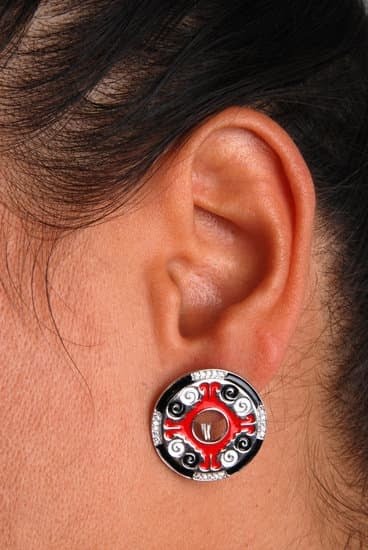Taking care of your jewelry is essential to maintain its brilliance and beauty. Regular cleaning is a crucial part of this process, ensuring that your pieces stay in pristine condition. But have you ever wondered how long does jewelry cleaner last? In this article, we will explore the lifespan of jewelry cleaner and why it matters.
Jewelry cleaners are specifically formulated solutions designed to remove dirt, oils, and tarnish from various types of jewelry, including gold, silver, diamonds, gemstones, and more. They work by using gentle yet effective ingredients that dissolve dirt and grime without damaging or scratching your precious pieces. The frequency at which you need to clean your jewelry depends on several factors such as wear frequency, exposure to chemicals or pollutants, and personal preference.
The durability of a jewelry cleaner primarily depends on its composition and quality. Higher-quality cleaners tend to last longer compared to cheaper alternatives. The effectiveness and longevity of the product also hinge on the type of jewelry you have in your collection. Delicate pieces may require more frequent cleaning with gentler solutions compared to sturdier ones. By understanding these factors, you can better determine how long your particular jewelry cleaner will last before needing replacement.
In summary, maintaining the cleanliness of your precious jewels is vital for their overall health and beauty. Regularly cleaning them with an appropriate jewelry cleaner ensures their longevity and prevents any damage caused by dirt or grime buildup.
Now that we’ve covered the importance of cleaning our beloved accessories let’s delve deeper into what exactly is included in a typical bottle of solution labeled as a “jewelry cleaner”. Let’s explore various types available in today’s market along with tips for extending their lifespan while maximizing their effectiveness.
What is jewelry cleaner and how does it work?
Jewelry cleaner is a specialized cleaning solution designed specifically for cleaning and maintaining various types of jewelry. It is formulated to remove dirt, oils, and grime that can accumulate on the surface of jewelry over time, restoring its shine and luster. But how exactly does jewelry cleaner work?
Jewelry cleaners typically contain a combination of chemicals that are safe to use on precious metals such as gold, silver, and platinum, as well as gemstones like diamonds, sapphires, and rubies. These chemicals work by breaking down and dissolving the buildup of oils, dirt, and other contaminants on the surface of the jewelry.
One common ingredient found in jewelry cleaners is ammonia. Ammonia is an effective cleaning agent that helps to cut through grease and dirt. It works by breaking down the oils and grime into smaller molecules that can be easily rinsed away with water.
Another key ingredient in some jewelry cleaners is detergent or soap. The detergent helps to lift away dirt particles from the surface of the jewelry while also creating a nice foaming action that allows for easy rinsing.
Some specialty jewelry cleaners may also contain additional ingredients such as polishing agents or tarnish inhibitors. Polishing agents help to buff away scratches or dullness on metal surfaces, while tarnish inhibitors help to prevent metal from tarnishing or losing its shine over time.
Overall, jewelry cleaner is an essential tool for keeping your favorite pieces looking their best. By understanding how it works and what it contains, you can make better choices when selecting a cleaner for your specific needs.
To summarize:
- Jewelry cleaner is a specialized cleaning solution designed to remove dirt and grime from various types of jewelry.
- It works by using chemicals such as ammonia and detergent to break down oils and lift away dirt particles.
- Some cleaners may also contain additional ingredients like polishing agents or tarnish inhibitors for added effectiveness.
If you want to learn more about the factors that determine the lifespan of jewelry cleaner, continue reading the next section.
Factors that determine the lifespan of jewelry cleaner
When it comes to the lifespan of jewelry cleaner, two key factors play a significant role: composition and quality. The composition of a jewelry cleaner refers to its ingredients, chemicals, or solvents that are designed to efficiently clean different types of jewelry. On the other hand, the quality of the cleaner pertains to how well it is formulated and manufactured. Understanding these factors can help you choose the right jewelry cleaner and ensure its longevity.
Composition is a critical factor in determining how long a jewelry cleaner will last. Different types of cleaners have varying compositions, which can affect their effectiveness and lifespan. For instance, some cleaners contain harsh chemicals such as ammonia or bleach that are highly effective at cleaning certain types of jewelry, but they may degrade over time or cause damage if used on delicate pieces like pearls or opals.
On the other hand, mild cleaners with gentler ingredients like soap solutions or non-toxic formulas usually have a longer lifespan as they are less likely to deteriorate over time. These gentle cleaners are suitable for regular maintenance and cleaning purposes without causing harm to most types of jewelry.
The quality of a jewelry cleaner also plays a vital role in its lifespan. Higher-quality cleaners are more likely to last longer compared to cheaper or lower-quality alternatives. This is because reputable brands invest in research and development to create formulations that are not only effective but also resistant to degradation over time. Quality cleaners often undergo rigorous testing to ensure their longevity and safety for various types of jewelry materials.
To summarize, both composition and quality factor into determining how long your jewelry cleaner will last. When choosing a cleaner, consider your specific needs based on the type of jewelry you own and look for high-quality options with gentle compositions to extend its lifespan as much as possible.
- Consider your specific needs based on the type of jewelry you own when choosing a cleaner.
- Look for high-quality options that have undergone rigorous testing to ensure their longevity.
- Mild cleaners with gentle ingredients are generally suitable for regular maintenance and cleaning purposes without causing harm to most types of jewelry.
Various types of jewelry cleaners and their respective durability
There are several types of jewelry cleaners available in the market, each with its own durability and effectiveness. Understanding these different types can help you choose the right cleaner for your jewelry and maximize its lifespan.
- Liquid Jewelry Cleaners: Liquid jewelry cleaners are commonly used for cleaning gold, silver, and platinum jewelry. These cleaners usually come in a liquid form that is mixed with water to create a solution. They often contain chemicals such as ammonia or alcohol which help dissolve dirt and grime from your jewelry. The durability of liquid cleaners can vary depending on their formulation and concentration. Generally, they can last for several months if stored properly.
- Ultrasonic Jewelry Cleaners: Ultrasonic cleaners use high-frequency sound waves to create tiny bubbles that remove dirt and debris from your jewelry. These machines are particularly effective for cleaning intricate pieces with hard-to-reach areas. Ultrasonic cleaners are durable and have a longer lifespan compared to liquid cleaners. With proper maintenance and care, they can last for years without losing their effectiveness.
- Jewelry Cleaning Pens: Cleaning pens are small, portable devices that allow you to clean your jewelry on-the-go. They usually contain a cleaning solution within the pen itself, which is released through a brush tip when you twist the bottom of the pen. While these pens offer convenience, they may not be as durable as other types of cleaners due to their smaller size and limited amount of cleaning solution.
| Type | Durability |
|---|---|
| Liquid Jewelry Cleaners | Several months |
| Ultrasonic Jewelry Cleaners | Years |
| Jewelry Cleaning Pens | Variable, depending on size and usage |
Remember, the actual lifespan of your jewelry cleaner will also depend on factors such as frequency of use and the amount of dirt or residue it needs to remove. It is important to follow the instructions provided by the manufacturer and properly store your jewelry cleaner to ensure its longevity.
Tips for extending the lifespan of your jewelry cleaner
Maintaining the cleanliness and shine of your jewelry is essential to keep them looking their best. Using a jewelry cleaner is an effective way to remove dirt, oils, and tarnish from your precious pieces. However, it’s natural to wonder how long a bottle of jewelry cleaner can last before it needs to be replaced. In this section, we will discuss some tips for extending the lifespan of your jewelry cleaner and getting the most out of each bottle.
Use small amounts
One way to make your jewelry cleaner last longer is by using small amounts each time you clean. It’s important to remember that a little goes a long way when it comes to cleaning solutions. Place enough solution on a soft cloth or brush to complete the job without saturating it. Avoid pouring the cleaner directly onto your jewelry, as this can lead to wastage and unnecessarily using more product than necessary.
Avoid contact with water
Another tip for prolonging the lifespan of your jewelry cleaner is by keeping it away from water whenever possible. Water can dilute the solution and reduce its effectiveness over time. When cleaning your jewelry, always wipe off any excess moisture before applying the cleaner. Additionally, store the bottle in a dry place and ensure that the cap is tightly sealed after each use.
Clean your jewelry regularly
Regularly cleaning your jewelry can also help extend the lifespan of your jewelry cleaner. By removing dirt and oils on a frequent basis, you’ll prevent buildup that can require more product with each cleaning session. Make it a habit to clean your favorite pieces every one to two weeks or as recommended by the manufacturer. This will not only keep them looking their best but also save you from having to use more jewelry cleaner than necessary.
By following these tips, you can make sure that your bottle of jewelry cleaner lasts as long as possible. Remember that proper storage and maintenance are crucial factors in maintaining the effectiveness of your cleaner. With a little care and attention, you can enjoy clean and sparkling jewelry without constantly needing to replace your cleaning solution.
Signs that your jewelry cleaner is no longer effective
Loss of effectiveness
One of the first signs that your jewelry cleaner is no longer effective is a noticeable loss of its cleaning power. If you find that your jewelry is not coming out as clean and shiny as it used to, or if there is a residue left behind after cleaning, it may be an indication that the cleaner has expired.
Over time, the active ingredients in the cleaner can degrade or become less potent, leading to a decrease in its ability to remove dirt, oils, and tarnish from your jewelry.
Change in color or consistency
Another sign that your jewelry cleaner may be past its prime is a change in color or consistency. Oftentimes, cleaners will have specific instructions on what they should look like when they are still effective. For example, if your jewelry cleaner turns dark or cloudy instead of staying clear or translucent, it could be an indication that it has deteriorated and is no longer suitable for use.
Unpleasant odor
An unpleasant odor emanating from your jewelry cleaner can also indicate that it is no longer effective. Cleaners with active ingredients such as ammonia or solvents may give off a distinct smell when they are fresh, but over time these odors can become stronger and more unpleasant as the chemicals break down. If you notice a strong, foul smell coming from your cleaner even before using it, it could suggest that its effectiveness has been compromised.
It’s important to note that while these signs may indicate that your jewelry cleaner is no longer effective, they do not necessarily mean that the cleaner will harm your jewelry if used. However, using an ineffective cleaner may not yield satisfactory results and could potentially lead to further tarnishing or damage if not properly cleaned. Therefore, if you notice any of these signs, it might be time to consider investing in a new bottle of jewelry cleaner.
Proper storage and maintenance of jewelry cleaner to maximize its longevity
Proper storage and maintenance of jewelry cleaner can significantly extend its lifespan and ensure that it remains effective for a longer period of time. Here are some tips on how to maximize the longevity of your jewelry cleaner:
- Store in a cool and dry place: Exposure to heat and moisture can deteriorate the quality of the jewelry cleaner over time. It is important to store it in a cool and dry place, away from direct sunlight or areas with high humidity. This will help maintain the integrity of the cleaner’s composition and prevent it from becoming less effective.
- Keep it tightly sealed: When not in use, make sure to tightly seal the container or bottle of your jewelry cleaner. This will prevent any air or moisture from entering, which can cause the cleaner to lose its effectiveness more quickly.
- Avoid cross-contamination: Do not use the same cloth or brush that you use for cleaning other substances, such as chemicals or household cleaners, on your jewelry cleaner. Cross-contamination can compromise the quality of the cleaner and diminish its lifespan. Use separate tools specifically designated for your jewelry cleaning routine.
- Follow manufacturer’s instructions: Different types of jewelry cleaners may have specific instructions for storage and maintenance. Read and follow the manufacturer’s recommendations to ensure that you are maximizing the longevity and effectiveness of your particular brand of jewelry cleaner.
- Regularly clean tools: If you use brushes or cloths to clean your jewelry, make sure to clean them regularly as well. Rinse brushes thoroughly after each use to remove any residue from both the jewelry and the cleaner itself. Wash cloths according to their care instructions so that they do not transfer any residual dirt or chemical build-up onto your jewelry during future cleanings.
By following these tips, you can prolong the lifespan of your jewelry cleaner and continue to enjoy sparkly, clean accessories for years to come.
| Tips for Proper Storage and Maintenance |
|---|
| Store in a cool and dry place, away from heat and moisture |
| Tightly seal the container or bottle when not in use |
| Avoid cross-contamination by using separate tools for jewelry cleaning |
| Follow manufacturer’s instructions for storage and maintenance |
| Regularly clean brushes and cloths used for jewelry cleaning |
Frequently asked questions about the lifespan of jewelry cleaner
When it comes to jewelry cleaning, one common question that arises is how long does jewelry cleaner last? Below, we have compiled a list of frequently asked questions to help shed light on this topic.
- Q: How long does jewelry cleaner typically last?
- A: The lifespan of jewelry cleaner can vary depending on several factors such as composition and quality. Generally, most jewelry cleaners can maintain their effectiveness for up to 1-2 years if stored and maintained properly.
- Q: Can expired jewelry cleaner still be used?
- A: Using expired jewelry cleaner is not recommended as its efficiency may have significantly diminished over time. Expired cleaners may not effectively remove dirt, grime, or tarnish from your jewelry, potentially causing damage. It is best to replace expired or ineffective cleaners with new ones.
- Q: Can I make my own homemade jewelry cleaner?
- A: Homemade jewelry cleaners made from household products like baking soda or dish soap can be effective in removing mild dirt or tarnish. However, their shelf life is generally shorter compared to commercially available cleaners. It is advisable to make small batches of homemade cleaners and discard any leftover mixture after each use.
- Q: Are all types of jewelry cleaners equally durable?
- A: No, the durability can vary among different types of jewelry cleaners. For example, liquid-based cleaners may have a longer shelf life compared to wipes or foam-based ones. Additionally, some specialized formulas may be designed for specific metal types and offer higher durability for certain pieces of jewelry.
- Q: How can I extend the lifespan of my jewelry cleaner?
- A: To maximize the longevity of your jewelry cleaner, ensure that the cap or lid is tightly sealed when not in use to prevent air exposure and potential evaporation. Store it in a cool and dry place away from direct sunlight or heat sources which can degrade the cleaner. Additionally, avoid cross-contamination by using separate cleaning tools for different jewelry pieces.
By addressing these frequently asked questions, you can gain a better understanding of the lifespan and effectiveness of jewelry cleaners. Remember that proper storage, maintenance, and replacing expired or ineffective cleaners are essential steps in ensuring that your jewelry stays clean and sparkling for years to come.
Conclusion
In conclusion, the durability and effectiveness of jewelry cleaner are important factors to consider when it comes to maintaining the beauty and longevity of your precious pieces. The lifespan of jewelry cleaner can vary depending on its composition and quality, as well as how it is stored and maintained.
It is crucial to choose a high-quality jewelry cleaner that is specifically designed for the type of jewelry you own. Different types of cleaners may have different lifespans, so it is important to do your research and read reviews before purchasing one. Some cleaners may only last for a few uses, while others can last for several months or even years.
To extend the lifespan of your jewelry cleaner, it is recommended to properly store it in a cool, dry place away from direct sunlight. This will help prevent evaporation or degradation of the cleaner over time. Additionally, make sure to tightly seal the container after each use to minimize exposure to air and moisture.
If you notice that your jewelry cleaner is no longer effective, such as if it doesn’t produce the same shine or removes tarnish as before, it may be time to replace it. Using an ineffective or expired cleaner could potentially damage your jewelry rather than clean it.
Frequently Asked Questions
Can you use expired jewelry cleaner?
It is generally not recommended to use expired jewelry cleaner. Expired jewelry cleaner may have lost its effectiveness and could potentially be less safe to use, as the chemical composition might have changed over time. The expiration date on the jewelry cleaner indicates the period of time when it is most effective and safe to use.
Therefore, using an expired jewelry cleaner may not provide satisfactory results in cleaning your jewelry and could even damage the pieces you are trying to clean. It is advisable to always check the expiration date on your jewelry cleaner and replace it if it has passed.
Can you leave jewelry in jewelry cleaner?
Leaving your jewelry in jewelry cleaner for extended periods of time is typically not advisable. While many jewelry cleaners are designed to be safe for various metals and gemstones, leaving your jewelry soaking for extended periods can potentially cause damage or discoloration to certain materials.
Follow the instructions provided with your specific jewelry cleaner, as they often specify how long you should leave your items in the solution before removing them. Additionally, delicate or porous gemstones may require shorter cleaning times or alternative cleaning methods altogether, so it’s important to research and understand what is appropriate for each piece of jewelry.
Can you use jewelry cleaner too much?
Using jewelry cleaner excessively can potentially lead to damage or wear on your jewelry over time. Jewelry cleaners often contain chemicals that help remove dirt, oils, and tarnish from metal surfaces and gemstones. However, these chemicals can also be abrasive or harsh if used too frequently or unnecessarily.
It is generally best to follow the instructions provided with your specific brand of jewelry cleaner regarding frequency of use. If in doubt, consult with a professional jeweler who can offer guidance on proper cleaning techniques for different types of jewelry. By adhering to recommended usage guidelines, you can keep your precious pieces clean without compromising their quality or appearance.
Jewelry cleaner, whether store-bought or homemade, is an essential tool to keep your precious accessories sparkling and beautiful. However, it is important to note that like many products, jewelry cleaner does have an expiration date. So, how long is jewelry cleaner good for, and does it go bad?
When it comes to homemade jewelry cleaner, especially those containing ammonia, it is crucial to pay attention to its shelf life. Ammonia is a common ingredient in DIY jewelry cleaning solutions due to its effective cleaning properties. However, over time, ammonia jewelry cleaner can lose its potency and become less effective in achieving that desired shine.
To ensure the best results, it is recommended to use homemade jewelry cleaner with ammonia within a specific timeframe. Although there isn’t an exact expiration date, it is generally advised to use it within six months to a year of preparation. This timeframe ensures that the homemade jewelry cleaner remains potent and efficient in bringing back the luster to your beloved pieces.
If you’re wondering, “Does ammonia clean jewelry effectively?” the answer is yes. Ammonia is known for its ability to cut through grime and dirt, making it an excellent choice for removing tarnish and restoring brilliance to your jewelry. However, it is crucial to handle ammonia with care and always dilute it properly when making homemade jewelry cleaner.
For those who prefer a ready-made jewelry cleaning solution, it is essential to find a product that clearly states the expiration date on the packaging. This way, you can ensure that the jewelry cleaner is still effective before using it on your precious gems and metals.
In conclusion, whether you choose a homemade jewelry cleaner with ammonia or a store-bought jewelry cleaning solution, being aware of expiration dates and shelf life is crucial. By using them within the recommended timeframe, you can confidently keep your jewelry looking its best and maintain that radiant sparkle that catches everyone’s attention.

Welcome to my jewelry blog! My name is Sarah and I am the owner of this blog.
I love making jewelry and sharing my creations with others.
So whether you’re someone who loves wearing jewelry yourself or simply enjoys learning about it, be sure to check out my blog for insightful posts on everything related to this exciting topic!





